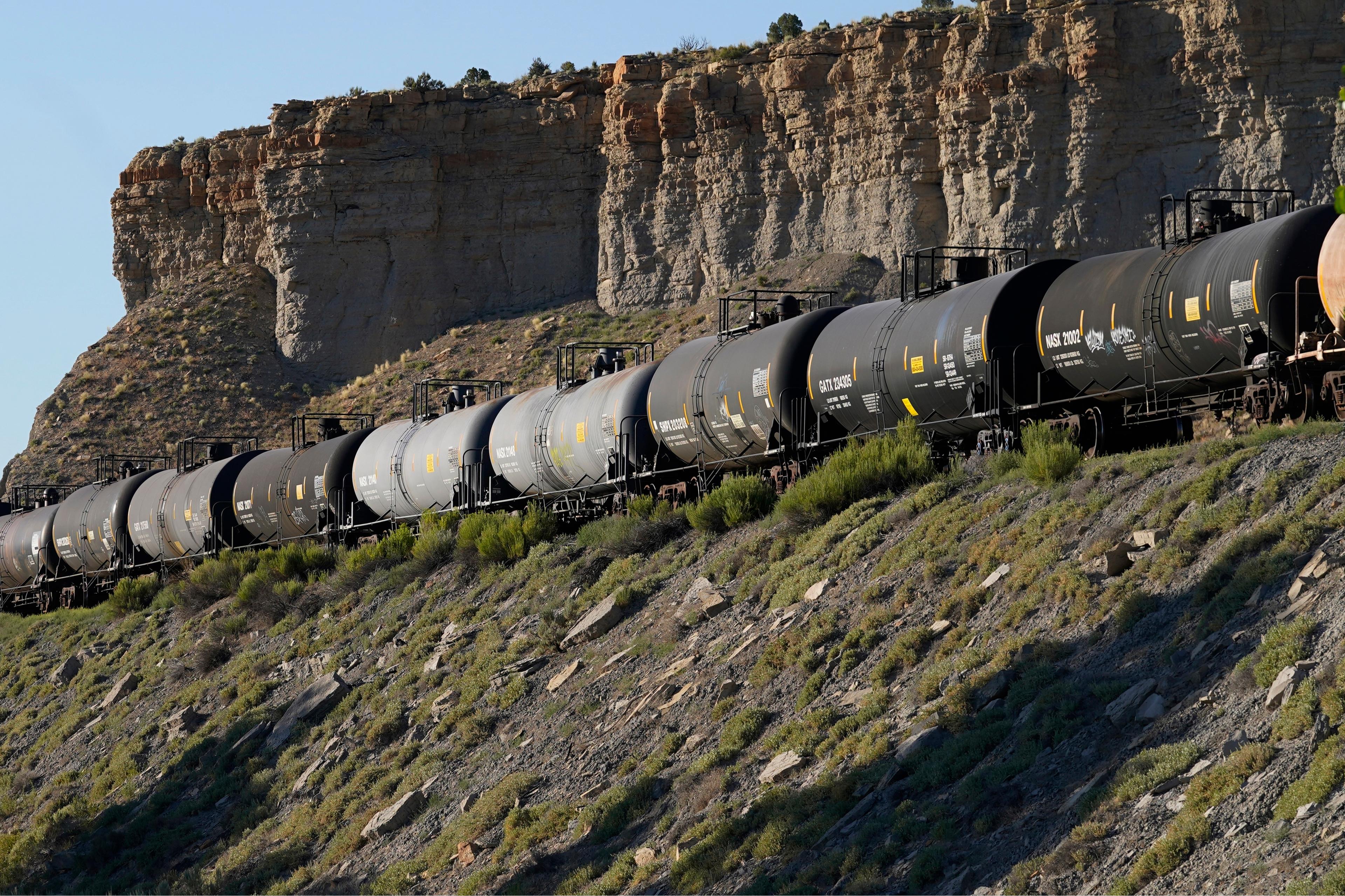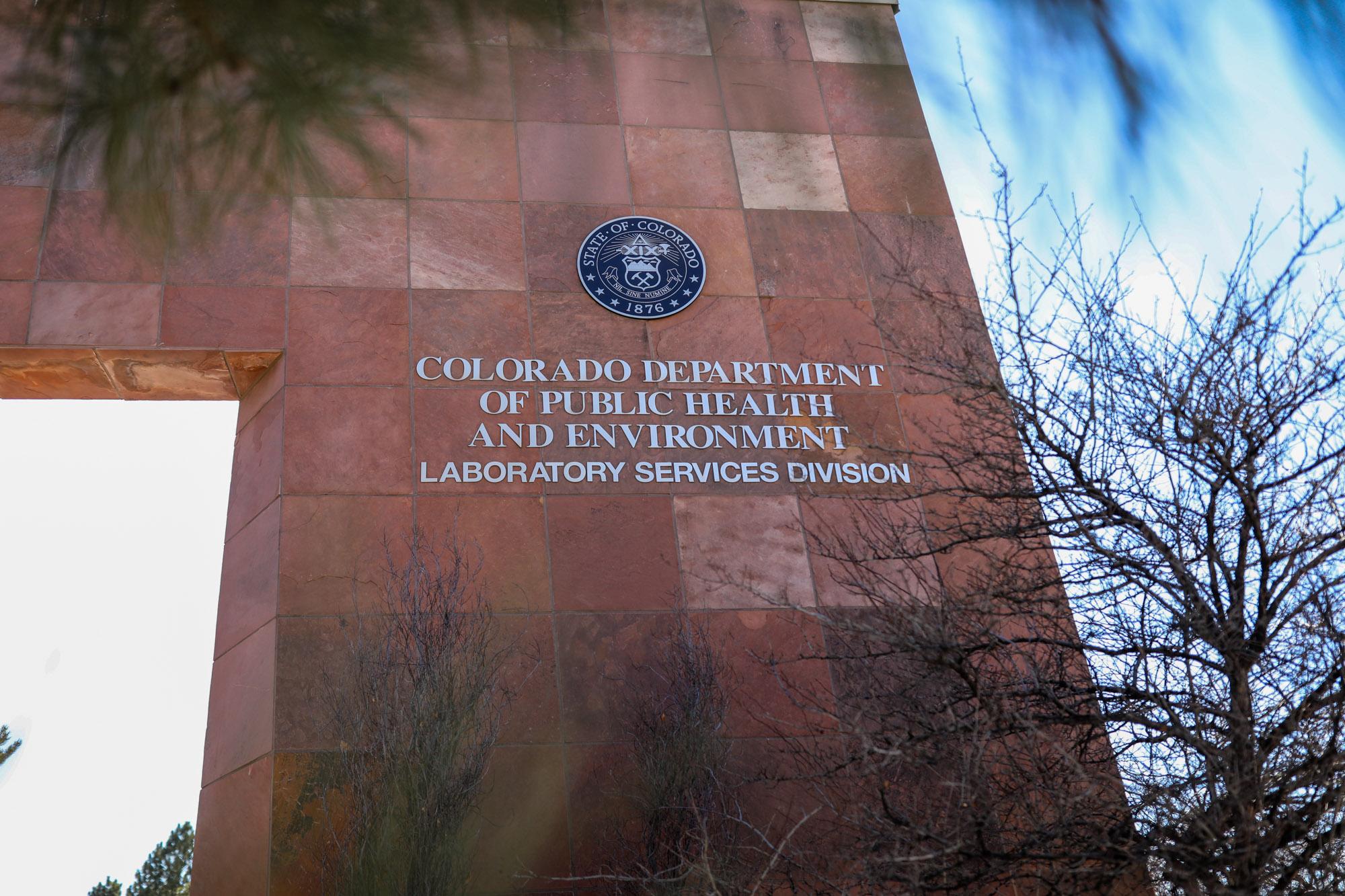
A controversial railway expansion that would start in Utah and send waxy crude oil through Colorado is taking a detour today in Washington, D.C.
Today, the Supreme Court of the United States will hear oral arguments in the Uinta oil train dispute, which centers around a plan to add 88 miles of new rail line to connect crude oil deposits in eastern Utah to existing rail freight lines that can carry the oil to refineries.
But the case is not just about the permits necessary to lay down new tracks. The high court’s decision could fundamentally alter a bedrock environmental law known as the National Environmental Policy Act, which authorizes agencies to carry out environmental reviews on projects that have some “major federal action,” according to the law.
At the center of the case is an argument over whether federal agencies must evaluate a project’s environmental effects that are outside of their authority to regulate. A ruling that limits the scope of environmental reviews could speed up federal permits for a wide range of projects, ranging from mines to solar farms.
“We really need a predictable, efficient and transparent permitting process,” said Chad Whiteman, a vice president at the U.S. Chamber of Commerce’s Global Energy Institute, which is supporting the railway, during a webinar.
But the same ruling could limit how federal agencies evaluate harmful environmental effects, including air pollution from oil and gas refineries and a stream of emissions helping fuel record global warming.
“Add the railway, and you would create an unthinkable public health nightmare spreading throughout the entire region,” said Brian Moench, a medical doctor with Utah Physicians for a Healthy Environment, at a press briefing.
Last week, Justice Neil M. Gorsuch recused himself from the case over ties to Philip F. Anschutz, the Colorado billionaire who owns oil wells in Utah that could potentially benefit from a ruling.
A one-way ticket to federal court
The proposed rail line would allow up to several trains carrying millions of gallons of crude oil to travel to refineries in the Gulf each day, according to an environmental impact statement. Along the way, the train’s route would hug the Colorado River for miles.
Project proponents — which include Utah county governments and the Ute Indian Tribe of the Uinta and Ouray Reservation — say the train project will bring an economic boom to the region by allowing companies to ship more oil and command higher prices in distant refineries. But the project’s opponents — including Eagle County, much of Colorado’s congressional delegation, and environmental groups — say an oil spill in the Colorado River watershed would be catastrophic.
In 2021, the project received a green light from the Surface Transportation Board, a federal agency that regulates economic issues related to railroads.
But in August 2023, the U.S. Court of Appeals for the D.C. Circuit pulled the emergency brake. Judge Robert Wilkins ruled that the board did not fully weigh the project’s environmental risks, including ones to the Colorado River, against the project’s benefits.
“The Board is required to compare both sides of the ledger, not just acknowledge that both sides exist,” Judge Robert Wilkins wrote in the ruling.
A coalition including seven counties in Utah that support the plan appealed, and in June, the Supreme Court agreed to hear their arguments.
The promise and pitfalls of NEPA
President Nixon signed the National Environmental Policy Act in 1970, which was meant to “encourage productive and enjoyable harmony between man and his environment,” according to the law.
The federal government invokes NEPA thousands of times each year, and it’s become one of the most “influential statutes ever passed by Congress internationally,” according to Daniel Farber, a law professor at the University of California, Berkeley, who briefly consulted with an environmental group on the Supreme Court case.
“Countries all over the world have adopted environmental assessment laws based on NEPA,” Farber said.
NEPA requires agencies to “take a hard look” at the environmental impacts of a project before making a decision. In some instances, the law requires agencies to lay out several alternatives — like different routes a railway might take — and analyze their pros and cons. Only then can the government recommend a final decision.
“Congress wrote NEPA over 50 years ago as a really basic ‘look before you leap’ principle for the federal government,” Sambhav Sankar, a lawyer at the environmental law firm Earthjustice, who is representing the respondents, said at a press briefing. “Look at the environmental consequences of your decisions before you actually make those decisions.”
But while NEPA requires an agency to go through certain steps, Farber said agencies are not actually required to select plans that minimize damage to the environment. The government can prioritize other factors, like economic benefits, instead.
“[Agencies] can say this is terrible for the environment, but it’s a project that has a lot of other benefits, so we’re going ahead,” Farber said.
NEPA has critics across the political spectrum. A common critique is that the law, and the lawsuits that follow, can slow down projects like solar farms and transmission lines for years. Gov. Jared Polis has called for reforming state and federal permitting, which includes complying with NEPA, to accelerate renewable projects.
In 2020, the Trump administration finalized a new NEPA rule that limited the environmental effects agencies needed to consider. But the Biden administration scrapped it, and in April, finalized a new rule meant to speed up environmental reviews.
In December 2023, Congress passed the Fiscal Responsibility Act, which rewrote and amended sections of NEPA. In July, a bipartisan group of senators released a bill to speed up permits for projects, which could cut NEPA’s scope.
In October, a federal court ruled that the Council on Environmental Quality, an executive office that administers the law, does not actually have the authority to write rules about NEPA.
New rules, legislative changes and court challenges mean the law, despite being half a century old, remains in flux.
What the Court could do
The Supreme Court is questioning how broad a NEPA environmental review can be for certain agencies. In the Uinta rail expansion case, the appeals court ordered the Surface Transportation Board to consider the effects of emissions from refining and burning oil — or explain in more detail why it was unable to — even though the transportation agency does not regulate those impacts.
Environmental legal groups point to the law, which says agencies should consider “reasonably foreseeable” impacts.
“Analyzing the environmental consequences of building the railroad without analyzing what happens when the oil arrives is like diving headfirst into a pool without checking how deep the water is,” Deeda Seed, a campaigner with the Center for Biological Diversity, which sued to block the project, said during a press briefing.
“There’s a significant potential for harm to the environment and public health from this proposed railway.”
But conservative legal groups disagree and think that the law’s scope — broadened by years of lawsuits — has made complying with it “almost impossible,” according to a legal brief by Mario Loyola, a professor at Florida International University and a fellow at the Heritage Foundation.
“[This] problem was not created by NEPA, a simple and modest good-governance statute, but by the fearsome procedural nettle that activist courts have turned it into over the years,” Loyola wrote.
Loyola expects the Supreme Court to reverse the appeals court, and sharply rein in NEPA.
“The question is, how broad will the scope of that reversal be?” Loyola said during a webinar. “This is not an incrementalist court anymore. It’s very likely that we’re going to be in for some real fireworks in the oral argument.”
Opponents of the railway worry that tightening NEPA will erode the lofty goals the law sought to achieve.
“It is certainly possible that the court would issue a ruling that would very much restrict the scope of NEPA review,” Sankar, of Earthjustice, said.
“It will mean that the government will make decisions with far less information about environmental impacts … that will inevitably lead to more pollution, more health impacts, more loss of biodiversity and great injuries to climate.”
- U.S. Supreme Court sets date to hear Uinta oil train dispute
- Next stop for ‘waxy crude’ oil train: the U.S. Supreme Court
- Forest Service withdraws permit for Uinta rail project that would send crude oil through Colorado
- Federal judge pauses Uinta Basin Railway project that would ship millions of gallons of oil through Colorado









